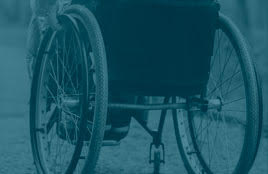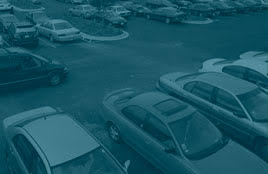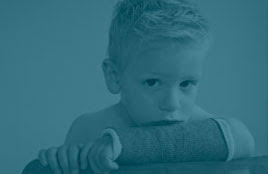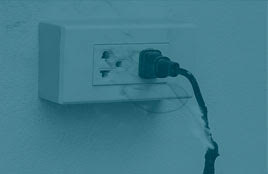This article originally appeared in the Toledo Blade on March, 24, 2005.
Deborah and John Flick spent $6,350 for what they thought would give them peace of mind about their daughter, who was born with cerebral palsy and couldn’t walk or talk.
They bought a special bed, advertised in a parenting magazine, that had an electric enclosure that was to keep their child safe at night.
But the Delaware couple maintains the bed did not work properly, and last August they found 7-year-old daughter Victoria dead, trapped where she had fallen between the mattress and railing of her hospital bed.
The Flicks are among a half dozen families that have sued the manufacturer, Vail Products Inc. of East Toledo.
“The Flicks were devastated by their daughter’s death,” said their attorney, Robert Hunn of Philadelphia.
“They still have not been able to, or wanted to, talk about the case publicly.”
Federal marshals this week raided Vail’s First Street offices after a U.S. Food and Drug Administration investigation found 30 people had become trapped in beds made by Vail and at least seven of them died. The company makes padded, mesh domes that fit over and enclose a bed to keep an occupant from falling or wandering away.
Vail executives could not be reached for comment yesterday, and a recording on the phone at the firm’s headquarters said the business was closed until after Easter.
Chief Executive Joy Vail said in a statement Tuesday that the owners “strongly disagree that our products are unsafe or dangerous when used as directed.”
The Flicks, who filed suit in February in U.S. District Court in Wilmington, Del., declined to be interviewed by The Blade yesterday.
But their court brief said they bought a Vail 1000 electric enclosed bed system in December, 2000, based on an advertisement in Exceptional Parent magazine. The purchase was made because their daughter sometimes moved about at night.
The couple alleged that a flip-up side rail did not extend the full length of the bed and that they contacted Vail and received a bar to inset through the railing.
But, they contend, the bar prevented the system from locking properly.
They claimed they notified Vail in April, 2003, of the problem.
Even though the Toledo firm that year announced a recall of that bed model – affecting 1,900 beds – the Flicks said they did not receive such a notice.
Instead, the Bear, Del., couple said Vail sent Charles Aschoff, owner of All Around Better Care of Nazareth, Pa.
He came to their home to adjust the bed on several occasions before the death.
The Flicks sued Vail for at least $75,000, contending the firm knew or should have known the enclosed bed would cause injury.
Mr. Aschoff was named as a co-defendant.
Mr. Hunn, the Flicks’ attorney, said his clients plan to use any money they might win in the suit to set up a fund to help other families with special-needs children.
Sherry Pennington of Corsicana, Texas, has a story similar to the Flicks’.
On April 10, 2003, she found her son Tracy trapped face down in the side compartment of his Vail bed, apparently suffocated. She said she and her husband, Allen, tried mouth-to-mouth resuscitation, but to no avail.
Robyn Long of Gainesville, Ga., said her son Derek died on Jan. 12, 2003, face down between his bed’s mattress, side rail, and netting. It too was a Vail product.
Neither family could be reached for comment, but both sued Vail.
Some of the lawsuits in the past two years against Vail do not specify a dollar amount for damages.
Two that did, one in Texas seeking $25 million and another in Virginia seeking $4 million, were settled in recent months, according to court documents. But the settlements are confidential.
In some suits, Vail responded that the deaths “were caused by entities, events, and circumstances beyond the control of the defendant.” In one response, the Toledo firm said it was “aware of other alleged claims involving possible entrapment” but denied that its products were defective and denied that it failed to give adequate warnings of possible dangers.
The FDA issued two warning letters to Vail – one in 1997 and one in 2003 – outlining unacceptable practices. But the firm failed to take corrective measures, the government said.
During the raid this week, marshals seized Vail models 500, 1000, and 2000 enclosed beds, along with labeling and marketing materials.
The firm – begun in 1990 by Ms. Vail and her husband, Robert – employs 35 people and has annual revenue of $1 million to $5 million, according to Harris Infosource’s Ohio Industrial Directory. Ten years ago, the maker of enclosed hospital beds told The Blade it employed 15 and had annual revenue of $1.3 million.






